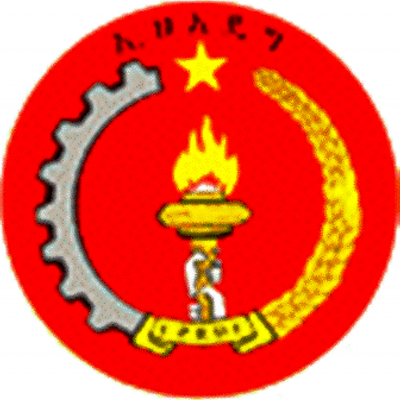
When news of a 100% victory by the ruling EPRDF came out
shortly after the May 2015 general elections, everyone scorned the result; it
was too stupid to be true. After all, democratic elections in a multinational
state home to a near 100 million odd, which Ethiopia is one, were not supposed
to be like this. So, the world was right to scorn the results because nowhere
in it would similar experiences go down history books unchallenged.
Alas, the
ruling party in Ethiopia was not only intoxicated by the victory to see what
was in the offing, but it was so sure to get away with it, as it did get away
with many lapses of political orders in the last quarter a century.
The reason
why the world – not the government in Ethiopia – looked at the results of that
fateful election with a sheer horror is because the latter is the author,
director and main character of the tragic political drama which eventually
dragged Ethiopia to the verge of crisis, yet again. And that election was the
straw that broke the Camel’s back. From north to south and left and right
Ethiopians are on the streets screaming their ultimate rejection of a
government which claimed to have won a 100% of their votes.
Damage
from within and outside
There is
damage to be sustained when a rebel-turned-government spoils its political
capital to become a bullying dictatorship. In all measures, that is what
happened in Ethiopia since the advent of May 1991. A federated state tutored by
party manifesto; alternative political parties decimated from inside out with
their leading members often jailed, harassed and in some cases killed or simply
made to disappear from the face of earth; independent media and civil society
organizations persecuted in equal terms as terrorists; and academic institutions
and religious establishments coerced to dance to the music of the ruling party.
Regrettably, that is Ethiopia as we know it since it was declared the
‘democratic republic of Ethiopia,’ although some would discount the first 10
years as a semi-successful democratic experiment.
The result is
that military violence has now become the new language in which the government
is using to talk back to the people of Ethiopia. Judging by the look of
events it wouldn’t be an overstatement to say that Ethiopians are betrayed by
their own government which has no misgivings to turn into the military to
answer their questions and control their dissenting voices.
But there is
also damage to be sustained from outside when western allies of a dictatorship
sugarcoat their terms of reference to declare a dictatorship “democratic” and
continue to engage with it business as usual. (See story
here).
Such blunders
by the west are driven by several factors. Leaving aside the cliché, this
magazine posits two of the often neglected factors.
The first is the burning ambition by Ethiopia’s
western allies to showcase how the aid business turned a once poster child of
famine into a successful budding state with a seemingly soaring economy. Calls
by rights organizations, and most importantly, the people of Ethiopia for the
west to use constructive diplomatic leverages to tame the government often fell
on deaf ears. Ethiopia’s western allies repeatedly opted to hold their nose
about the smelly human rights record and the government’s unbridled control of
both the political and civic spaces in Ethiopia. But at the same time they
continued pumping taxpayers’ money in the name of aid and lavish a repressive
state with undeserved international legitimacy.
The second is the concept of not wanting to face
the task of opening the Pandora’s Box during what’s often a constitutionally
limited term in office practiced by most western governments. President Barak
Obama is leaving office and he was under no illusion that speaking truth to the
world that Ethiopia was going down the nasty way was going to do him more harm
than good.
The result is
that there remains no discourse and platform where Ethiopia’s western allies
can use to discipline a government they themselves enabled to grow out of
control.
True,
Ethiopia is a sovereign state whose independence should not be tampered with
but there are international laws, for example, that Ethiopia itself is a
signatory to. Sadly no western ally is daring to speak out loud when Ethiopian
officials use and abuse these laws the same way they use and abuse local laws.
The recent flagrant dismissal by the government in Ethiopia of the kind
reminder by the UN Human Rights Commission of the need to allow access to UN
monitors to investigate recent killings and rights abuses in Ethiopia is one
classic example.
This means it
should now be up to the ruling party to stop playing illusory for the sake of
PR consumption by the west and propaganda for Ethiopians and start facing the
inevitable. That means the ruling EPRDF should admit that the country is really
on the verge of crisis and that it and only it is responsible for it.
The truth is
that Ethiopians are revolting in the clearest of terms. One need not look
beyond what has evolved in Oromia and Amhara regional states over the last ten
months where simple, constitutional and even by the ruling party’s lexicon
‘legitimate’ requests by the people of Ethiopia was turned by the government
into unimaginable horror.
For a
government that deprived the people of Ethiopia any other means to either
humble it or talk back to it, this shouldn’t come as a surprise. It is
harvesting what it sowed and the least it can do is admit that its way of being
a government is not working. If this means dissolving itself, so be it!
Addis Standard
No comments:
Post a Comment